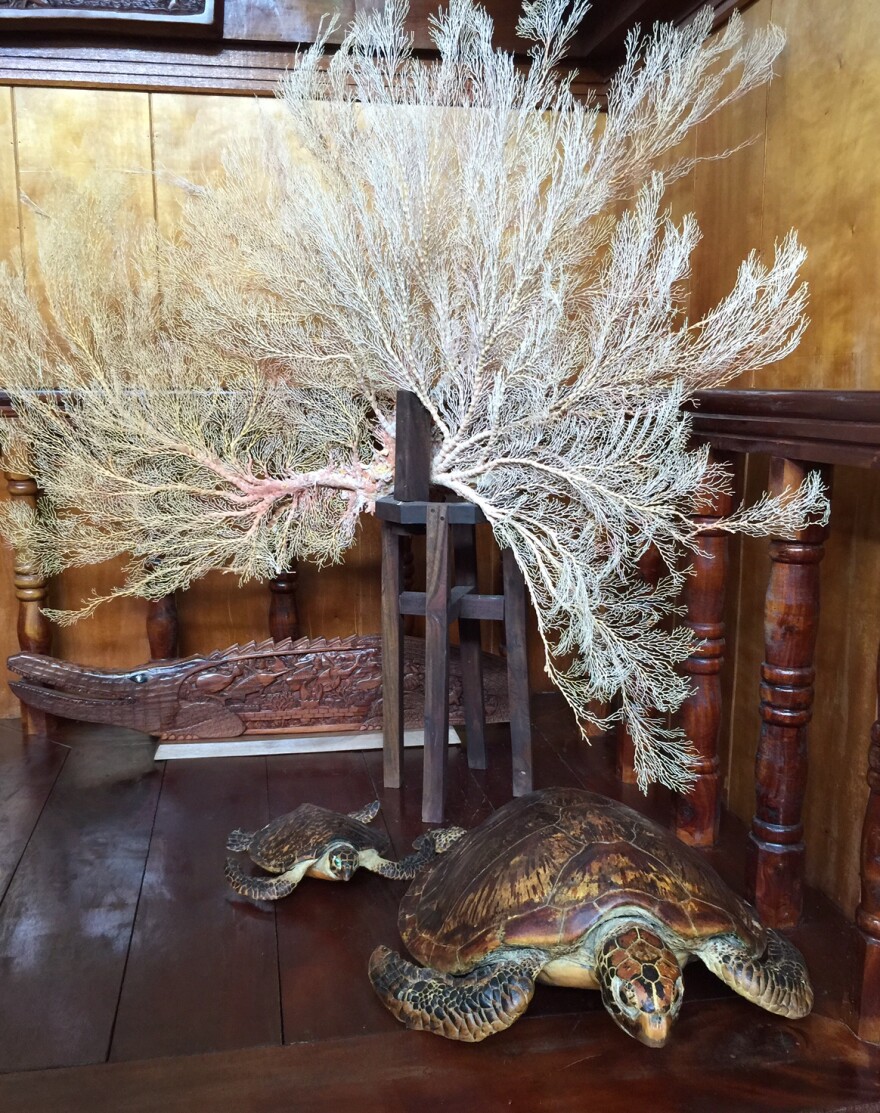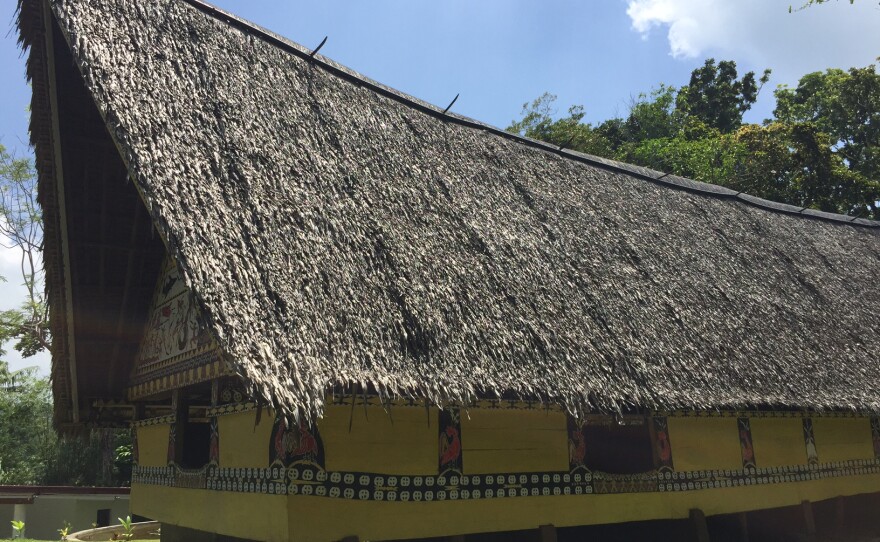

The first habitations on Palau could date to ten thousand years ago, settled by sailors from Indonesia or the Philippines. Like Hawai‘i, Palau’s period of Western contact began in the late 1700’s, with trade, missionaries and change to follow. In a recent visit, HPR’s Noe Tanigawa found that though Palau’s traditional matrilineal society is beginning to change, women wield a lot of power in the home and in government.
Palau is still a matriarchal society, with lineage and titles inherited from the mother's side. As head of Koror’s clans, Bilung Gloria Salii is the top women’s leader in this country. Here, in her shaded home in Koror, we are surrounded by the riches of Palau: gleaming dark woods used for furniture and the famous storyboards, handsome woven mats and fans, giant clam shells, and coconut vessels with sennit cords. Precious natural objects blend easily with Palauan art forms, including several fine carved wood storyboards. In one, an intricate depiction of the Breadfruit Tree story emerges from the dark wood. Below, mingle turtles, sharks, and fish of all kinds. Above, a majestic breadfruit lifts its branches, with one limb magically spouting a torrent of fish. Men and women, gather and prepare, the interlocking trees, leaves, baskets, bowls, fish, in joyous profusion all seem to echo the natural world here.

Bilung left college in the U.S. to become virtual queen of her country while in her twenties. She says, over the years, people tried to bring women’s liberation to Palau. It just didn’t work.
Men and women have their different roles, says Bilung, roles that complement each other in Palauan society. She says women even take on more of the men’s responsibilities, because it’s kind of their culture to “spoil” their men, and still follow the Biblical teaching that men are the head of the household. Men fish, women, farm, is kind of how it used to be, though many people have government jobs now.
Since ancient times, however, women have controlled the family wallet, and their relationships determine fiduciary responsibility at family gatherings. These gatherings, called customs, are key personal and community acknowledgements. Bilung says at a “custom” this weekend she might pay five thousand dollars to the honoree, while a man might pay maybe a hundred or fifty. Granted, Bilung is the queen, but every woman’s family ties determine her responsibility.
Bilung says at these customs, they know all their relatives, that’s why they go, and spend all their money. That’s how women are so powerful, she says.
Twenty-two years ago, Bilung was instrumental in creating the Palau Women’s Conference, an annual gathering of clanswomen from across the country. It is an extremely effective gathering, according to Kambes Kesolei, the editor of Palau’s Tia Belau newspaper. Kesolei also hosts television and radio programs on current events.
Kesolei lists the Family Protection Act against domestic violence, Palau’s moratorium on turtle hunting, and the landmark universal healthcare fund among successful laws initiated by the women’s conference.
How do these women accomplish what they do? Kesolei says for starters, women are respected, traditionally, as the ones who brought money to the family and clan. In addition, today, thanks in part to international scholarships, there are many off island educated women in prominent positions in government and industry. These two factors provide fertile soil for getting things done.

Kesolei says Women’s Conference organizers regularly invite government ministers and leaders to appear, many of whom realize a close grilling could be in store. According to Kesolei, leaders often find themselves making promises of support, there in the presence of hundreds of their wives, mothers, aunts, nieces, and cousins.
Can you imagine? Bilung says the women simply make suggestions, and the leaders see the light.
Could this work for a population larger than Palau’s 21 thousand? Could this work if weekly gatherings did not reinforce community bonds, as rich and intertwined as the storyboard carving? What will help solve the challenges Palau faces ahead? We’ll take a look at some of those tomorrow.
A certain gravitas takes hold, knowing who you are and your place in your world. Bilung Gloria Salii is gracious in her knowing. You might enjoy this extended interview.










